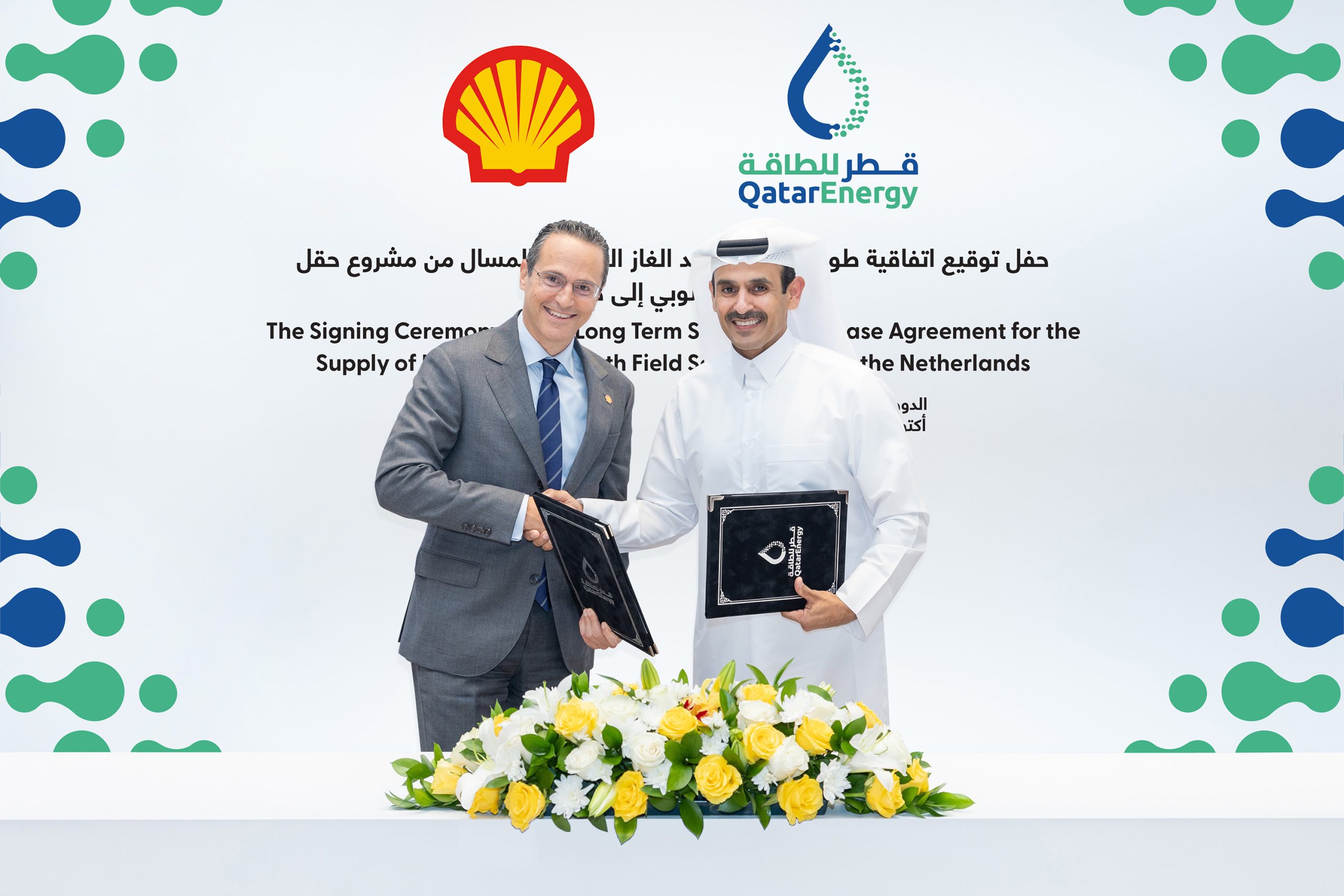Shell is among eight companies that inked partnership deals with QatarEnergy last year for the North Field expansion project.
QatarEnergy is set to provide Shell with a 27-year supply of liquified natural gas (LNG) as part of two long-term sale and purchase agreements, the Gulf energy giant announced on Wednesday.
The major agreements stipulate that QatarEnergy will provide the Netherlands with 3.5 million tonnes per annum (MTPA) of LNG starting 2026.
QatarEnergy CEO Saad Sherida Al-Kaabi noted the recent contracts “underscore the vital role natural gas plays in the energy transition and in supporting energy security of customers across the globe.”
“We are delighted to sign these two long-term LNG sale and purchase agreements with Shell that will further enhance our decades-long relationship and strategic partnership in Qatar and around the world,” Al-Kaabi, who is also Qatar’s minister of state for energy affairs, said.
The LNG volumes will be sourced from two joint ventures between QatarEnergy and Shell, both of which hold interests in the two parts of the North Field Expansion project—North Field East (NFE) and North Field South (NFS).
Shell has a 6.25% share in NFE and a 9.375% share in the NFS projects. Shell is among eight companies that inked partnership deals with QatarEnergy for the North Field expansion project last year. Other energy giants included TotalEnergies, Eni, ConocoPhillips, and ExxonMobil.
On 11 October, QatarEnergy and France’s TotalEnergies also signed a mega LNG supply agreement, under which the Gulf state would deliver 3.5 MTPA of LNG for more than 27 years.
“These agreements reaffirm Qatar’s commitment to help meet Europe’s energy demands and bolstering its energy security with a source known for its superior economic and environmental qualities. We look forward to working closely with our partner, Shell, in delivering on this shared endeavor,” Al-Kaabi added, referring to the latest deal with Shell.
The multibillion project is the biggest of its kind and is set to boost Qatar’s LNG production by more than 63% by 2026, while adding 48 MTPA to the global production. The construction of the mega LNG site officially started on 3 October when Qatar’s Amir Sheikh Tamim bin Hamad Al Thani laid its foundation brick.
Last month, Al-Kaabi said that the LNG sales from the project are “going very well” and could be sold out by the end of this year.
A reliable energy partner
The project has further cemented Qatar’s position as a reliable energy partner, especially last year during Europe’s energy crisis in light of the Russian invasion of Ukraine.
Just weeks before the full-blown invasion, the US administration held discussions with Qatar on providing Europe with gas supply, particularly given that the Russian pipeline made up 40% of the region’s gas supply at the time.
Qatar had already established itself as the leading global exporter of LNG years ahead of the geopolitical events, meeting at least 5% of Europe’s gas demand.
While Qatar has repeatedly expressed its willingness to extend a helping hand to its European partners, it also maintained that it cannot unilaterally bridge the supply gap.
Qatar already holds long-term fixed contracts with several Asian customers— Japan, China, India and South Korea—who make up the majority of its exports, rendering the country’s capacity to divert only 10%-to-15% of its existing LNG production to Europe until its new projects are operational.
Beyond geopolitical crises, Qatar’s expansion of LNG production falls in line with global efforts in cutting emissions, with the Gulf state promoting the gas as a green transitional fuel.
The use of LNG also aligns with the Paris agreement, which aims to limit global warming through the reduction of emissions.
Unlike compressed gas, LNG requires less storage space and reduces greenhouse emissions by 30-40%. LNG also remains the cleanest and safest to transport due to its ability to evaporate in the event that it is accidentally released in the process.







